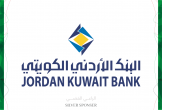SQUEEZING THE BEST OUT OF SQUASH

Jun 16, 2015
For many sports, planning rarely extends beyond the current Olympic cycle.
The Olympic Games provide federations and athletes with an opportunity every four years to evaluate and re-evaluate. It provides a chance to see what’s gone right, what’s gone wrong and, more importantly, what can be done to improve performances in time for the next Olympic Games in four years time.
And that extends to non-Olympic sports too. Very rarely does any sport planning look beyond that four-year horizon.
But one sport in Jordan, which is currently in the Olympic wilderness, has loosened those planning constraints considerably.
“It takes 20 years to create an Olympic or a world champion,” said Dr Ramsey Tabbalat, President of the Jordan Squash Federation (JSF).
“It is wrong to expect a teenager with talent to suddenly become a world champion within a short space of time. The journey starts when they are as young as seven and you can expect it to take 20 years for them to reach their full potential.”
And it is that sort of marathon planning that the JSF has adopted. Rather than the quick fix, the Federation is working with youngsters and nurturing potential and talent.
“Squash faces many restrictions and obstacles,” said Tabbalat. “Courts are obviously one. It is hard to convince clubs and gyms to include squash courts in their planning because they take up a lot of space and don’t provide much return in the way of income.
“We had an example of one club which actually had squash courts but they were being used as storage room.”
Despite its obvious obstacles, squash in Jordan is currently going through a renaissance.
Brothers Ahmed and Mohammed Sarraj are well established on the Asian circuit, with the former breaking into the world’s top 100 senior rankings in 2014. On the Arab level, Jordan is firmly placed in the top three behind Egypt and alongside Kuwait.
The impressive headquarters at Al Hussein Youth Sports City boast six courts and the introduction of an Academy for seven-nine year olds has tapped into a generation of new talent.
“Squash is a game where you are limited by what you can offer in terms of coaches and courts so while we would love to welcome hundreds of kids to the sport, we are realistic and make sure our numbers fit in with what we have available,” said Ramsey, himself a former Jordan team captain from the 1980’s.
“We have a strong structure in place from which to build steadily from. A lot of planning has gone into our current programmes and if we carry on with what we are doing, we will be in an even stronger position.
“The youngsters we have here now in the Academy are promising players and are being looked after very well. They have a long road ahead of them but we hope they will be with us for many years to come. We are now very active on the Asian scene and getting stronger.”
One strategy the JSF has adopted is not to send players to tournaments that they will win, but to tournaments that will test them to the limits.
“This is the only way they can improve and step up a level,” said Tabbalat. “We send players to tough tournaments in places like Hong Kong, Manchester and Malaysia. It is not about winning it is about improving and continuing to raise the standards here.”
Jordan plays an active role in the Asian scene. The Kingdom was instrumental in setting up the Super Series which travels to seven countries every year, and also combined two age groups into one tournament when Amman hosted the 2011 Asian Junior Championships. Others have since followed suit.
With squash constantly being talked about as a future Olympic sport, these are exciting times with young players knowing there is the added incentive of possibly playing on the greatest stage of all.
Only time will tell whether the long-term plans will see them deliver.







